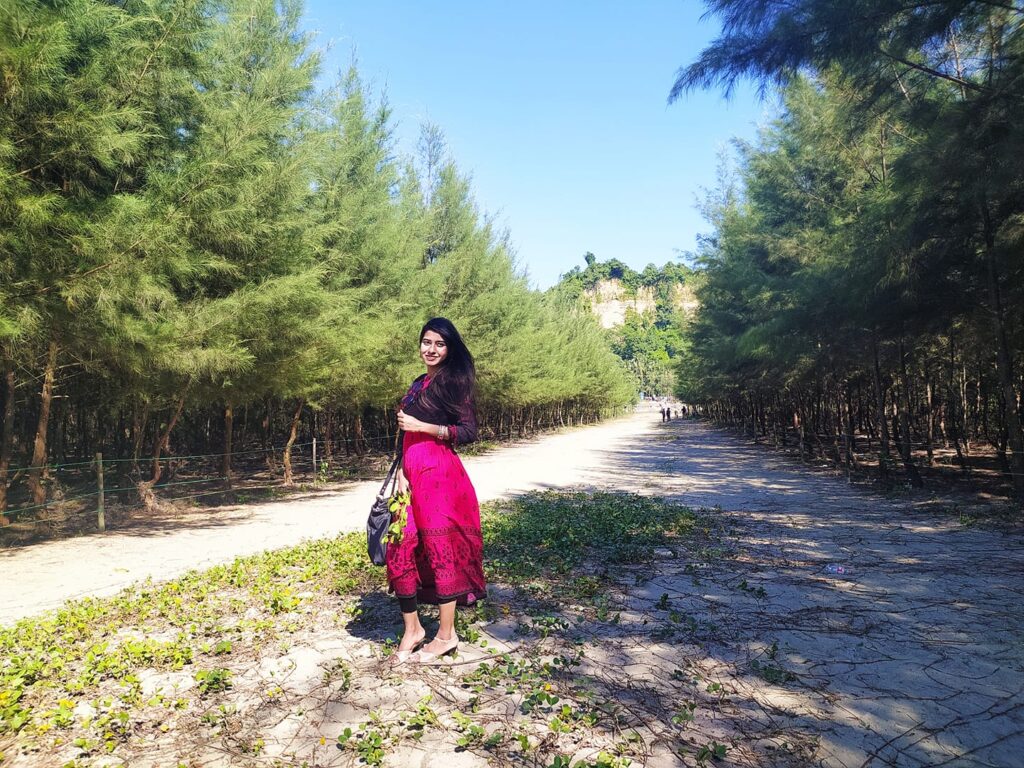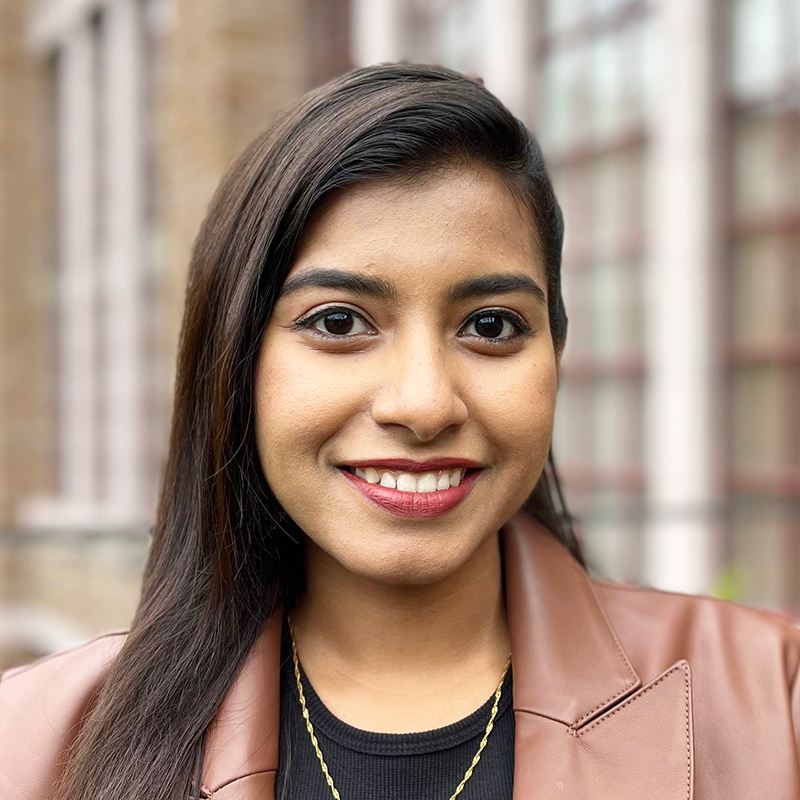Research Assistant, UW
Azeezah is a research assistant at the University of Washington. She is pursuing a Master of Science in Design Technology from the College of Built Environment at UW. Before joining the CLF, Azeezah worked at an architectural firm in Bangladesh as a registered architect. She utilized adaptive simulation modeling to inform context-specific design choices that differed from conventional practices. This first-hand experience reinforced her belief that targeted sustainable design expertise is imperative to guide Bangladesh’s rapidly expanding infrastructure responsibly. Consequently, Azeezah joined a disaster resilience project with Caritas for ethnic minority shelters. At UW, under expert guidance, she aims to develop proficiency in energy modeling and learn strategies to quantify and reduce embodied carbon using life cycle assessment. Azeezah is also interested in building Python coding abilities for streamlined, sustainable analyses. She plans to use her increased knowledge to promote sustainable architectural transformations and environmentally responsible infrastructure growth that benefits communities. She strives to pioneer solutions that reduce construction’s embodied emissions and environmental burdens through research, advocacy, and design innovation.
by Azeezah Sultana Priyota
As an architecture undergraduate from Bangladesh, I focused primarily on functionality and aesthetic design before the COVID-19 pandemic. During the numerous lockdowns, I found myself reflecting deeply on the state of the world and how we, as architects and builders, impact nature and people’s wellbeing. I realized I felt a calling to use my design skills not just to create beautiful structures but to build a sustainable environment that uplifts communities. This led me to dedicate myself to studying climate-conscious construction methods, materials science, and innovative technologies that reduce embodied carbon emissions.
I developed my passion for sustainable design and materials by analyzing buildings and using different simulations to understand the relationship between embodied carbon and operational energy. For my thesis on developing an agro-tourism community for marginalized indigenous Santal people of my country, I researched vernacular construction extensively using local, low-carbon materials like bamboo and mud. I also contributed to a disaster resilience project on modular shelters for ethnic minorities, gaining further hands-on experience with alternative materials and community participation.
Working at an architectural firm after graduating, I was deeply troubled by the complete lack of consideration for embodied carbon in mainstream building practices despite Bangladesh’s rapid urbanization. With acute infrastructure strains from exploding population growth and land constraints, optimizing for sustainability is crucial. However, awareness and adoption of embodied carbon analysis or assessments are extremely limited.
Due to the lack of local data, high costs, and specialized expertise, I became interested in expanding the adoption of Life Cycle Assessment (LCA) by addressing these barriers from various directions. This includes conducting feasibility analyses of international policy frameworks and identifying suitable localized policy mechanisms, assessing the applicability of LCA tools such as Athena and EC3 to mainstream construction and all life cycle stages, developing localized datasets and simplified tools adapted for Bangladesh’s supply chains, and exploring structural material innovations such as cross-laminated timber, which can store carbon. I am taking a comprehensive approach to my research by working as a research assistant in CLF and receiving cutting-edge sustainability training from the University of Washington. With this experience, I hope to become well-equipped to lead the crucial transition towards a more sustainable built environment and aim to minimize the carbon footprint of our built environment.
In addition to LCA, I am keenly interested in environmental simulation tools for sustainable design, such as Ladybug and EnergyPlus. During my undergraduate architecture training, I greatly enjoyed learning how to apply software to simulate lighting, solar exposure, energy loads, and other parameters to inform low-carbon building geometry and orientation. Moreover, I wish to explore emerging artificial intelligence applications in revolutionizing LCA capabilities. AI collaboration would perfectly complement my aspiration to model emissions tradeoffs, visualize interactive results, and enable simulation-assisted sustainable architectural design.
Apart from my professional pursuits, I have a number of personal passions that bring me joy, most of which connect back to my appreciation for the natural world. I love spending time outdoors exploring forests and landscapes – the beauty and complexity of diverse ecosystems is a constant source of inspiration. I also find great fulfillment in activities like gardening, growing organic vegetables and experimenting with aquaponics systems, which I first learned about through courses by Professor Gundula in the UW. Music is a cherished creative outlet for me, and I enjoy playing my ukulele with friends over board games on our days off. More than anything, the people around me give meaning to my life – chatting for hours with close-knit loved ones. Immersing myself in nature, arts, community, and nurturing relationships gives me a foundation of purpose and happiness that drives me to envision and work toward positive change in areas like sustainable architecture.

Azeezah in the forest near Cox’s Bazar, Bangladesh.

I developed my passion for sustainable design and materials by analyzing buildings and using different simulations to understand the relationship between embodied carbon and operational energy. For my thesis on developing an agro-tourism community for marginalized indigenous Santal people of my country, I researched vernacular construction extensively using local, low-carbon materials like bamboo and mud. I also contributed to a disaster resilience project on modular shelters for ethnic minorities, gaining further hands-on experience with alternative materials and community participation.